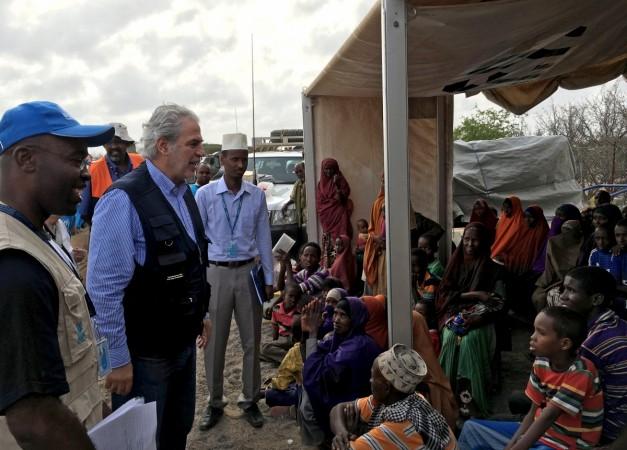
Kenya will reportedly shut down the biggest refugee camp in the world at Dadaab by the end of May 2017. The Kakuma camp, which the government had said would also be closed, appears to have been spared for now.
Closure of the Dadaab camp will force over 350,000 Somalis to either return to their war-torn country or seek other shelter. The move was reportedly confirmed by Kenyan Deputy President William Ruto on Monday.
The Dadaab camp poses an "existential threat" to Kenya, Ruto was quoted as saying by Reuters.
"Kenya has been faithful to her international obligations of humanitarian assistance... But no country can shoulder humanitarian responsibilities at the expense of security of her people," Ruto tweeted on Monday from Istanbul, where he was attending the World Humanitarian Summit.
Ruto argued that attacks, including the Westgate mall siege in Nairobi in 2013 and the Garissa University massacre of around 150 students in 2015, were planned at Dadaab by the Somalia-based militant group.
"There is radicalisation by extremist elements in the camp, especially of young people... Their recruitment into terror networks, including al Shabaab and al Qaeda, is a threat to the world ... The route to (the Islamic State group) is established," Ruto was quoted by Reuters as saying.
The move, criticised by the United Nations (UN) and human rights groups as being dangerous and impractical, is expected to send Somalis back to their war-torn homeland or to other countries to protect the country's security following a series of terror attacks by al Shabaab — al Qaeda's ally in Somalia, the Guardian reported.
The UN has been quoted by the Guardian as saying that shutting down the camp could be devastating as it might not be possible to force a large number of people to cross the Kenyan border into a war-torn country. Human Rights Watch has said the Kenyan government might resort to abuse and violence to drive out refugees.
Gerry Simpson, a senior researcher and advocate for the refugee programme, was quoted by the daily as saying: "Do they have buses to take 350,000 people across the border? No, so I think the aim of sowing fear through abuses and harassment is likely to be the strategy." Simpson reportedly cited rape, extortion, fear, beatings and arbitrary detention among the abuses that drove Somalis out of the Kenyan capital of Nairobi.
Kenya wants schools and other infrastructure to be built by the international community across the border so the Somali refugees are lured back.
The government had previously threatened to eject refugees, but this time it will stick to the deadline of six months that was agreed with Somalia and the UN, Ruto was quoted by Reuters as saying.
The United Nations High Commissioner for Refugees (UNHCR) was quoted by the agency in January as saying that it might miss a 2016 target to repatriate 50,000 refugees because Somalia is battling the al Shabaab insurgency and provides few public services. The country is gradually rebuilding and is due to elect a new parliament in August.









